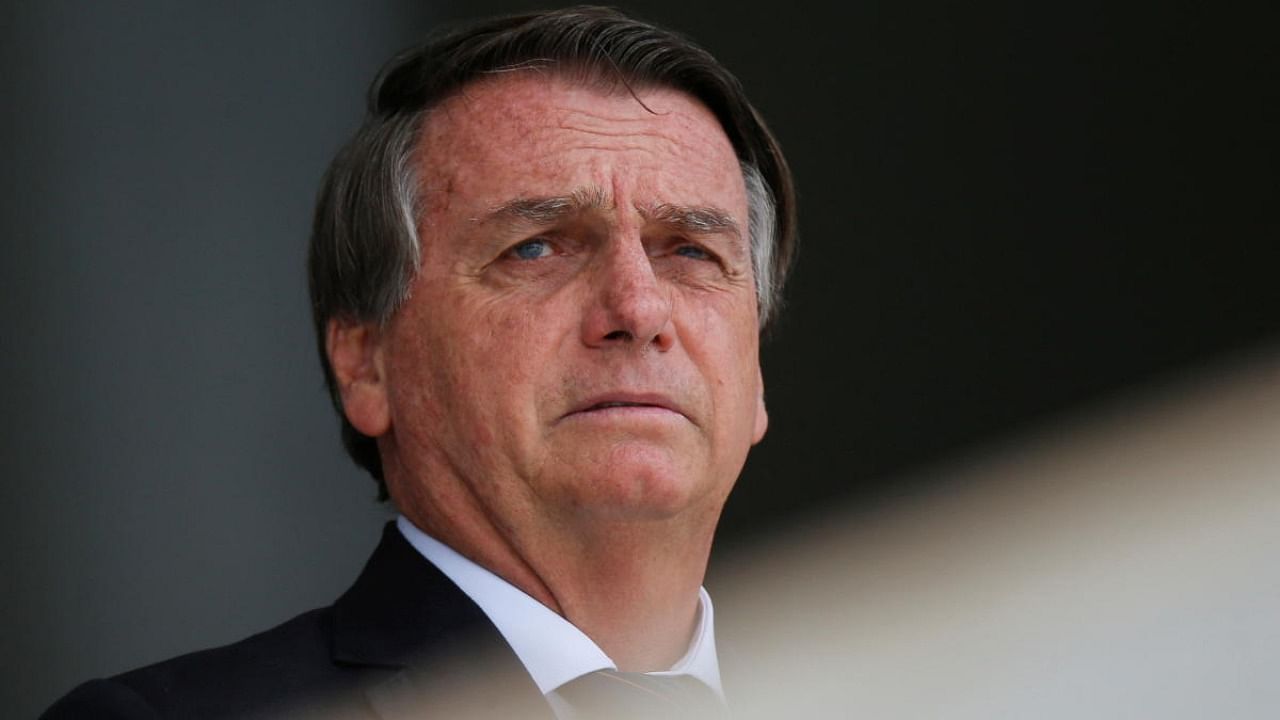
When Jair Bolsonaro survived a knife attack at a 2018 campaign rally and went on to win Brazil's presidency that October, it only fueled die-hard supporters' faith in the man they call "The Myth."
But the aura of invincibility around the far-right leader has faded as he enters the last year of his term with his popularity at an all-time low, the economy in recession and Brazil hit by one of the world's worst Covid-19 outbreaks.
Complications from that infamous stabbing have likewise dogged the 66-year-old president -- the most recent emerging Monday, when he was rushed to the hospital because of an intestinal obstruction, his latest health problem since the attack.
Bolsonaro, who tweeted a picture of himself flashing a thumbs-up from his hospital bed, said he may need surgery to fix the blockage, which forced him to break off a New Year's beach vacation and jet to the hospital in Sao Paulo.
"This is my second hospitalization with the same symptoms, the result of the stabbing on September 6, 2018 and four big surgeries," he wrote.
It is the latest bout of drama in a presidency filled with them, including before it even began.
Known for a brash, polarizing style that earned him the nickname "Tropical Trump," the former army captain surged to prominence during the 2018 campaign by playing to voters disgusted with politics-as-usual and Brazil's massive "Car Wash" corruption scandal.
His followers' belief in their "Messias," or "Messiah" -- Bolsonaro's middle name -- only grew when he survived the knife attack that nearly cost him his life, perpetrated by an assailant who was later found mentally unfit to stand trial.
Bolsonaro went on to win the presidency in a landslide, taking office on January 1, 2019 with solid backing from Brazil's powerful "beef, bullets and Bibles" caucus -- the farm lobby, security hardliners and Evangelical Christians.
Supporters love his gloves-off style, anti-establishment message and folksy touch on social media, where his movement thrives.
But he infuriates critics with his divisive vitriol and disdain for political correctness, often drawing accusations of racism, sexism and homophobia.
And his support has badly eroded among the political center and business sector as his government has floundered against the pandemic and its economic fallout.
Bolsonaro has insistently downplayed Covid-19, defied expert advice on fighting it and mocked face masks, social distancing and vaccines.
Despite coming down with Covid-19 himself in July 2020, he has stuck to his message, refusing to be vaccinated and joking the jab could "turn you into an alligator."
A Senate investigative commission recommended in October he face criminal charges, including crimes against humanity, for his government's response to Covid-19.
Bolsonaro also faces international outcry over the destruction of the Amazon rainforest, which has surged on his watch, fueled by cattle ranches encroaching on the jungle.
The damage to Brazil's international brand has worried investors, already alarmed by a recession, soaring inflation and the administration's failure to deliver on many of its promised budget-slashing reforms.
Bolsonaro also faces dozens of impeachment requests and a series of corruption scandals involving his inner circle.
Recent polls place him far behind his likely top opponent, leftist ex-president Luiz Inacio Lula da Silva (2003-2010), in Brazil's October 2022 elections.
Born in 1955 to a Catholic family with Italian roots, Bolsonaro served as an army paratrooper before starting his political career in 1988 as a Rio de Janeiro city councilor.
Two years later, he was elected to the lower house of Congress, where he served until becoming president.
He has ignited one explosive controversy after another with his remarks.
In 2014, he made headlines by saying left-wing lawmaker Maria do Rosario was "not worth raping" because she was "too ugly."
In 2011, he told Playboy magazine he would rather his sons be killed in an accident than come out as gay.
He is openly nostalgic for Brazil's 1964-1985 military dictatorship, and has cultivated a close relationship with the army top brass.
"The dictatorship's mistake," he said in 2016, "was to torture and not kill" leftist dissidents and suspected sympathizers.
Bolsonaro has four sons -- three of them politicians -- and, in what he called a moment of "weakness," a daughter.
Watch latest videos by DH here: